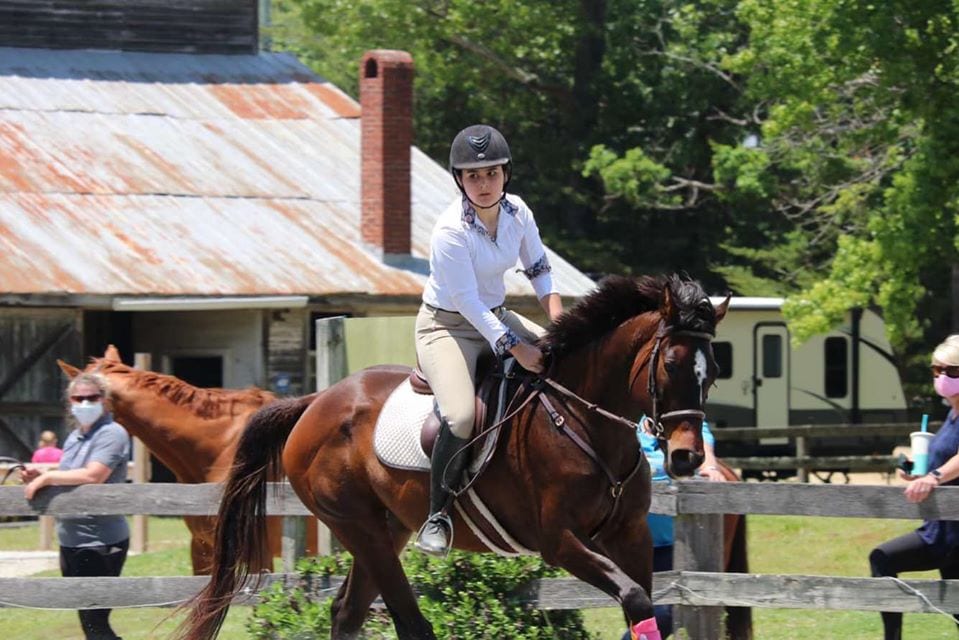OFF THE PACE: THE AFTERCARE CHALLENGE

Thoroughbred aftercare is one of those complex issues that has rightly been getting attention in the racing community. If the bad news is that it’s taken until now for the issue to gain traction, the good news is that the nuanced nature of this issue leads to an opportunity to apply many different strategies and tactics to support aftercare.
Here are just three of the different ways people are stepping up to tackle the challenge.
As noted on its website, Beyond the Wire (BTW) is “an industry-wide initiative between the Maryland Thoroughbred Horsemen’s Association, the Maryland Jockey Club, the Maryland Horse Breeders Association and Maryland jockeys” and is designed to facilitate soft landings for retiring Thoroughbreds who have raced in Maryland. The program has grown to the point where it is placing over 125 horses a year.

The majority of the placements are horses that go on to a life as pleasure horses. The group has one paid employee, Jessica Hammond, who has been involved since BTW was initiated in 2017.
“We are in a good position financially because we have all the major groups contributing and on top of that recently The Stronach Group stepped in and pledged a decent amount of money annually,” Ms. Hammond stated, noting the company’s four-year commitment of $250,000 per annum. “The only thing I would wish is I would like to see that some of the horses be retired earlier.”
- Coal Battle’s West Virginia connection
 Kentucky Derby contender Coal Battle has a couple of big fans in West Virginia, whose connection is through the horse’s WV-bred dam.
Kentucky Derby contender Coal Battle has a couple of big fans in West Virginia, whose connection is through the horse’s WV-bred dam.
To that end she expressed her support of the rule established by the Maryland Jockey Club where a horse that has not hit the board in eight consecutive starts is prohibited from racing in Maryland. She also endorsed the restrictions against horse slaughter in the proposed federal SAFE Act, which she said would be another huge step in protecting horses at the end of their careers.
Kim Clark of Thoroughbred Placement Resources (TPR) oversees a smaller, targeted effort. In lieu of placing a large number of horses for numerous purposes, she relies on her horse acumen and knowledge of Thoroughbreds, as well as dressage and jumping pursuits, to arrange equestrian placements. She is hoping as she proves that thoroughbreds can be every bit as good as warm-bloods in the equestrian events, this will create opportunities for placements that previously were not open.
In part she funds the work for the handful of specialized annual placements by working with a larger group of 16 or so horses for clients who need assistance with problematic horses.
“The problem with relying on charitable funding only, is that the expenses of keeping a horse are quite high,” she noted. In addition her work for TPR does not allow a lot of time for organizing charitable functions.
Ms. Clark thought a surcharge on breeders would be a beneficial funding mechanism. She feels the breeders would ultimately get a benefit as aftercare programs grew and improved the perception of the game among the general public.
- What we’re watching at Laurel Park this weekendWhat’s on tap at Laurel Park this racing weekend? Here’s who and what we’re watching.
Michele Kuegler, who is the Director of Aftercare and Community at Wasabi Ventures Stables, has used her position to help generate funds to support aftercare. When a horse leaves this public group ownership barn via retirement, or via claim with a positive ROI, the stable solicits a modest contribution per owner.
Those funds are, in the case of retirement, dedicated to the group that is taking the horse in. For the claimed horses Michele, chooses an accredited aftercare facility located near the track where the horse last raced. This practice has enabled Michele to establish connections with numerous mid-Atlantic aftercare organizations, and she has high praise for all their efforts.
In an interesting “when you get lemons, make lemonade” story, on Saint Patrick’s Day a Wasabi horse by the name of Shamrock Kid, trained by Jesse Cruz, broke down in training at Charles Town. Although this did not meet the typical scenario for which Michele would ask club members to contribute, she reached out to the owners who jointly contributed a four-figure donation to the local aftercare group, Aftercare Charles Town.
What to do with end-of-career racehorses is a problem with many causes. Fortunately, there are many ways to tackle the problem, and many people working on those solutions.
LATEST NEWS















